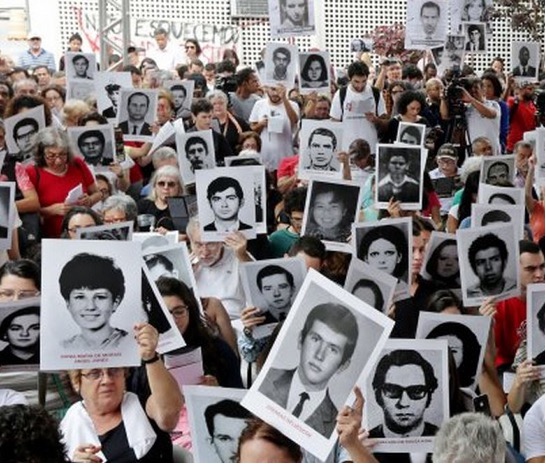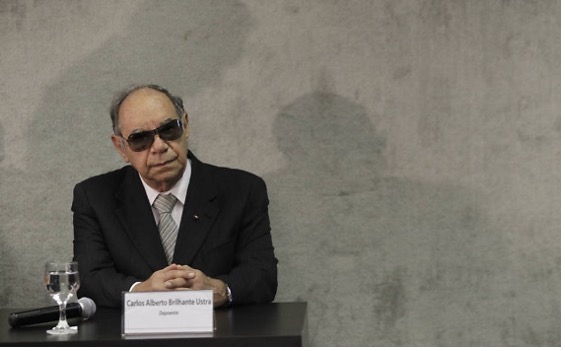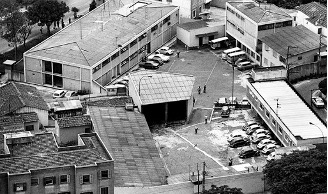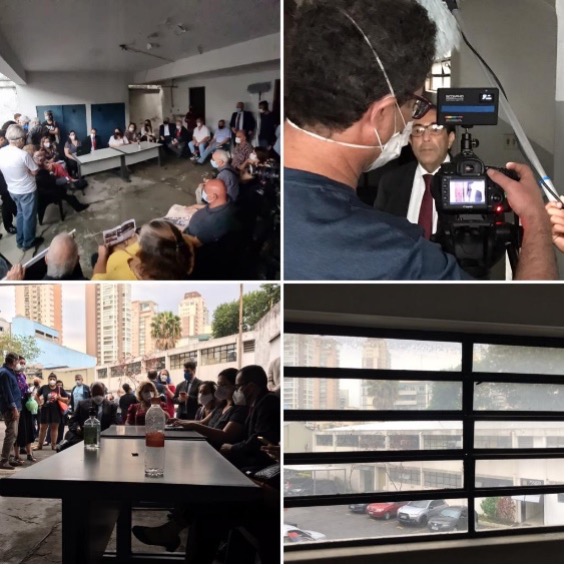In a post published on Maastricht Blog on Transitional Justice, María José Guembe referred to the following statement made by the UN High Commissioner for Human Rights in relation to the right of victims of serious human rights violations to reparations: “the fundamental obligation of a comprehensive reparations plan is not so much to return the situation to their status quo ante, which may be impossible, but to recognise the gravity of the violations and to show the State’s willingness to respect the rights” (translation mine).
Adopting reparations that truly satisfy the expectations of the victims of serious human rights violations may be a difficult task. The adoption-making process should not ignore the characteristics of the culture of the peoples of the affected nation, the daily priorities of the victims, the historical dynamics of each State and the main aspects of the transition to democracy, among other factors.

During the Brazilian civil-military dictatorship (1964-1985), the 36th Police District shared its facilities with one of the most important bodies of political repression: the Department of Operations and Information – Centre of Operations for Internal Defence (DOI-Codi), which was the first torture and extermination centre of the regime, in Sao Paulo. DOI-Codi was created in 1970, following the “successful” Operaçao Bandeirante (Oban) of 1969, which was launched to fight political opponents by political and military means.
According to the final report of the Brazilian National Truth Commission, DOI-Codi was commanded by an Army officer, generally a major or a colonel, and it was funded not only by the government but also with contributions from the private sector. DOI-Codi units were set up all over Brazil. Each unit was responsible for gathering information and planning security actions against left wing organisations, academics and other intellectuals, journalists, students, artists, workers, union leaders, and any other political opponents; such actions included the capture and interrogation of suspects.
Sao Paulo DOI-Codi is considered as one of the most active clandestine centres of torture and extermination during the Brazilian dictatorship. In fact, the goal of quickly obtaining information from kidnapped opponents by the DOI-Codi led to torture, rape, the killing of prisoners who were then presented as dead in combat or victims of suicide, etc.

After the dictatorship the premises of Sao Paulo DOI-Codi have been housing a police station (see here), but in 2014 they were declared of historical interest by the Council for the Defence of Historical, Archeological, Artistic and Touristic Heritage, following a petition by Mr Ivan Seixas—a survivor of this torture and extermination centre. The declaration of the premises of DOI-Codi as a site of historical interest was also consistent with the report issued by the Brazilian historian Debora Neves, who recommended the creation of a memory centre to honour the victims, and as a part of an educational process aimed at the new generations, so that another period marked by State terrorism will never happen in Brazil again.

Photo: Sergio Sade/Editora Abril/Memorial da Democracia
However, due to the inertia of the successive governments of the State of Sao Paulo since 2014, in June 2021 the State Public Prosecution Office filed a lawsuit against the State of Sao Paulo so that effective measures are taken to convert the premises of Sao Paulo DOI-Codi into a memorial site. The Centre for the Preservation of the Political Memory of Sao Paulo, the Brazilian Bar Association and human rights organisations have joined the lawsuit as claimants.
The initial idea proposed in the lawsuit is for the police station to continue functioning on the site, with the other buildings of the premises already starting to be converted into a memorial. Later, the police station would be relocated to another address. In the lawsuit it is also requested that the site be transferred from the Secretariat of Public Security to the Secretariat of Culture of the State of Sao Paulo.
Unfortunately, the State of Sao Paulo refuses the conversion of the site into a memorial, despite the aspirations of victims of the dictatorship.
A hearing was scheduled for 9 September 2021, which took place not at the seat of the Court site but at the premises of the former torture and extermination centre. The hearing was attended by survivors, relatives of victims and the press. This historic hearing was recorded for the documentary O Dia em Que a Justiça Entrou no DOI-Codi (The Day Justice Entered the DOI-Codi), directed by Camilo Tavares.

Photos by Professor Flávio de Leão Bastos Pereira
The DOI-Codi case is one of the most important ongoing cases in the context of transitional justice in Brazil. The struggle of DOI-Codi survivors, victims relatives, civil society organizations, federal and state prosecution offices, and the Brazilian Bar Association is of particular importance at present, given the extremist and denialist nature of the government of President Bolsonaro, who insists on destroying the democracy conquered with the great suffering of many.
Against this background, we trust the competent judicial authorities will uphold the claim filed by the State Public Prosecution Office and oblige the State of Sao Paulo to adopt all the necessary measures to convert the premises of the former Sao Paulo DOIC-Codi into a memorial site.
Dr Flávio de Leão Bastos Pereira is the correspondent of Maastricht Blog on Transitional Justice for Brazil and the lawyer representing Sao Paulo Political Memory Preservation Centre and the Brazilian Bar Association (Sao Paulo Section) in the DOI-Codi Case.